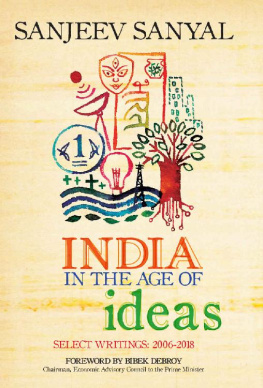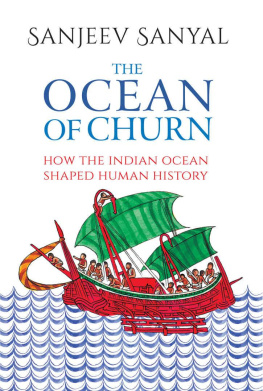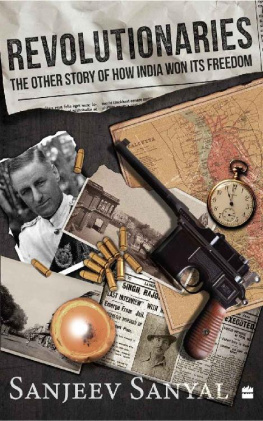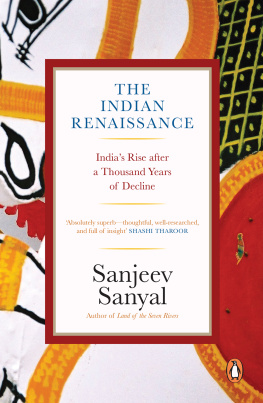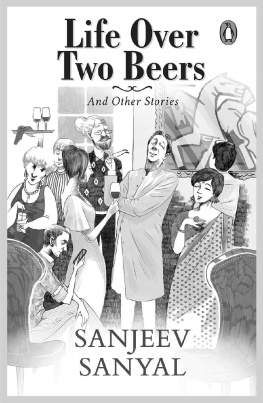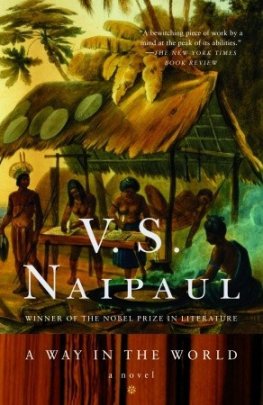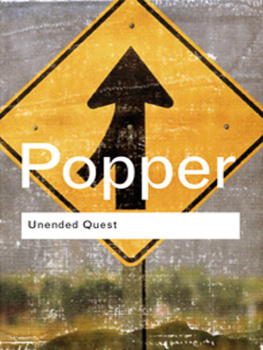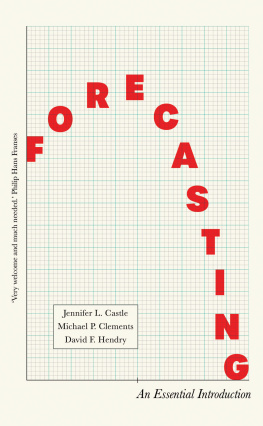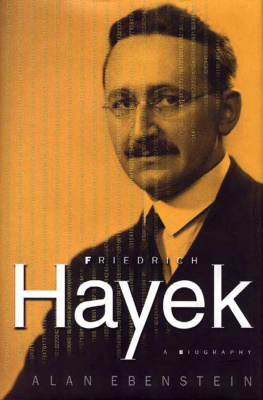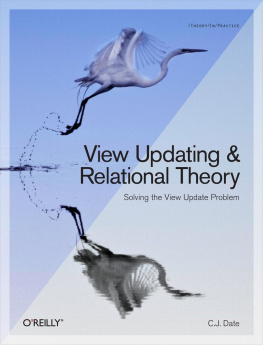

Published by Westland Publications Private Limited
61, 2nd Floor, Silverline Building, Alapakkam Main Road, Maduravoyal, Chennai 600095
Westland and the Westland logo are the trademarks of Westland Publications Private Limited, or its affiliates.
Copyright Sanjeev Sanyal, 2018
ISBN: 9789387894570
The views and opinions expressed in this work are the authors own and the facts are as reported by him, and the publisher is in no way liable for the same.
All rights reserved
No part of this book may be reproduced, or stored in a retrieval system, or transmitted in any form or by any means, electronic, mechanical, photocopying, recording, or otherwise, without express written permission of the publisher.
CONTENTS
Thou art wisdom, thou art law
Thou art heart, our soul, our breath
Thou art love divine, the awe
In our hearts that conquers death.
from Bankim Chandra Chatterjee s Vande Mataram (as translated by Sri Aurobindo)
A Complex Adaptive System (CAS) is just thatit is complex, it is adaptive and it is a system. You cant quite model it and if you are going to analyse it, you have to be inter-disciplinary in approach. In plain language, a CAS is difficult to pin down and figure out. I am aware of a CAS-type lens being used to examine diverse phenomena. But all the ones I am aware of are inanimate entities. To the best of my knowledge, CAS approaches havent been used to vivisect animate creatures, such as human beings. A certain type of Bengali is fertile ground for CAS scrutiny. That kind of Bengali is increasingly rare, having been far more common in the nineteenth century. Though a dying breed, such a Bengali isnt completely extinct yet. Everything in the world provides intellectual stimuli to such a Bengali and you cant straitjacket the person, pin him down. Who, or why, or which, or what, is Sanjeev Sanyal? I have no idea. He is like the Akond of Swat.
He is Principal Economic Advisor in Ministry of Finance. Therefore, he shapes Indias economic policy formulation and writes columns on economic developments, for general and business papers. He has written extensively on urban affairs and urban planning (including for books I have edited). He has also occasionally written (I think it is occasional) on environmental matters. He has dabbled in financial markets. He has spent several years of his life in the well-organised and less chaotic environment of Singapore, where the streets are lined with trees, but no birds chirp from those trees (outside Jurong Bird Park). He has written excellent books (more than one) on Indias history and geography. More recently, he has also produced a collection of short stories. There is a reading interest for fiction (mentioned in an interview in this collection) straddling Ernest Hemingway and Amish Tripathi. Hence, Sanjeev is a member of that extinct tribe, the nineteenth century babu of Bengal renaissance vintage with an insatiable intellectual curiosity that cant be straitjacketed and hemmed in with labels. (The Bengali babu would have drawn a line at Taekwondo though, also mentioned in that interview.)
This is a collection of that Bengali babus articles and columns. As is only to be expected, the pieces are written well and form an eclectic mix of economics, history (in Sanjeevs writings, geography is woven into history), culture and urban issues. More specifically, they have been segregated under three heads of History & Culture, Urban Dynamics and Economics. Why does one write a column? There can be multiple responses to that question. I have a point of view and I want that to be communicated to the rest of the world, perhaps so as to influence policy (or defend it), or engage in a debate. With that motive, columns are often triggered by a news event. Once that event has passed into oblivion, the column is no longer topical and loses relevance. The utility of compiling and publishing such columns in book form is questionable, apart of course from the questionable motive of pandering to the ego. The loss of topicality is understandably a function of the time lag between the column and the book being published and I have read compilations where that time lag has been as much as three decades. Sanjeevs columns on economics, included in this volume, are responses to immediate events. Thankfully, the time lag isnt much and readers will form an understanding about how the Principal Economic Advisor views such matters. An insider view is being communicated outside. Personally, I found the articles under the Urban Dynamics head more absorbing. Yet another reason for writing a column is a desire to learn. Every column-writer, if the person takes the job seriously, spends time on research and thinking. Urban dynamics is an issue on which Sanjeev has thought, and written, for a long time. His thoughts have crystallised and there is originality in what he says. He has that USP. (On economics there will be four, though not forty, others who will say similar things.) Consequently, the CAS argument is much more convincing for this head. For History & Culture, where there is some repetition with his earlier books, I think Sanjeev Sanyal is still thinking, reflecting and pondering. The CAS idea is still a glimmer, in the distance. It will eventually crystallise, but in a subsequent book.
I suspect most readers dont know Sanjeev Sanyal also writes poetry. Unfortunately, there are no poems in this collection. Therefore,
I read this book with pleasure
The particulars are not the true measure.
Whether you beg, buy or steal,
This book is a good deal
There is much in it to treasure.
Bibek Debroy
24 October 2018
T his is a collection of articles and columns that I wrote over the course of a decade or so. Given my current job, there was a temptation to skew the selection in favour of economics, but we eventually opted for a more eclectic mix, ranging from economics, and urban design to history, culture and religion. Neat silos may be useful for pedagogical purposes, but the real world does not function in separate compartments.
I am fortunate that I have enjoyed a personal and professional life that has been rich with varied experiences. I have worked in different fields, lived in many cities in India and abroad, and travelled extensively for work and pleasure. The one thing I have learned from these experiences is that the most interesting things about the world derive from the complex and unpredictable interactions between different aspects of human activity. I have tried to reflect upon these in this collection.
A PHILOSOPHICAL FRAMEWORK
Despite the range of topics I wade into, there is a philosophical framework that underlies much of my writing. As I have pointed out in many of my books and articles, I am specifically interested in fields of enquiry relating to Complex Adaptive Systems (CAS). What are these? Think of them as ecosystems made up of diverse factors and players who constantly interact with each other in multiple, often unpredictable ways. Unlike Newtonian systems, Complex Adaptive Systems are constantly evolving, being buffeted by shocks and influencing each other in non-linear ways. There are many examples of such systemseconomies, financial markets, cities, climate systems, the English language, ecological systems and, as I argue in the first essay in this collection, Hinduism.
Complex systems can be somewhat chaotic, but they are not as random as they may appear at a first glance. Some outcomes are more likely than the others, and the interlinkages can have patterns/cycles. The English language may have many quirks and is constantly in a state of flux, but it does have a rough framework of common usages and vocabulary. The same can be said of cities and financial markets.

